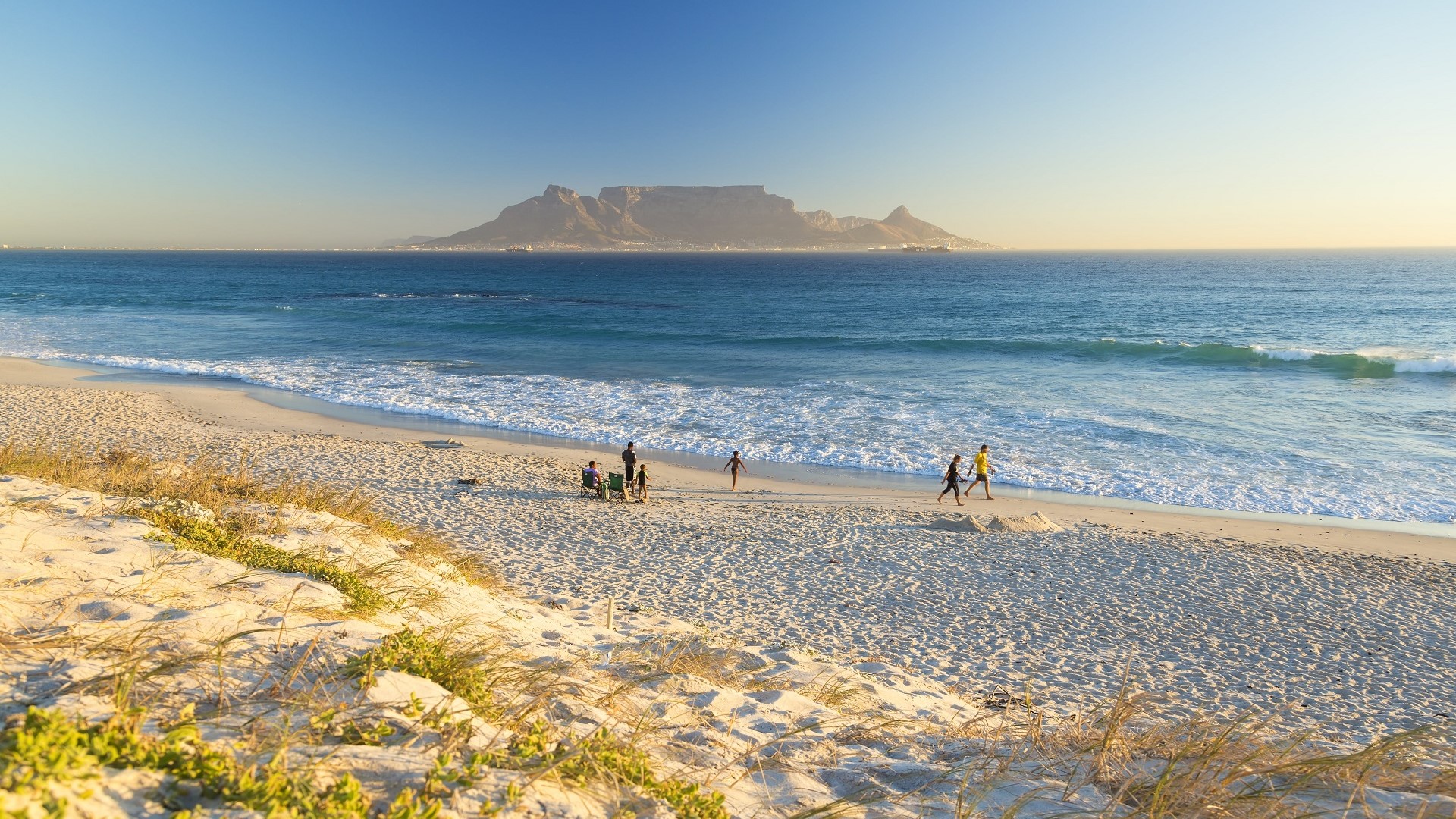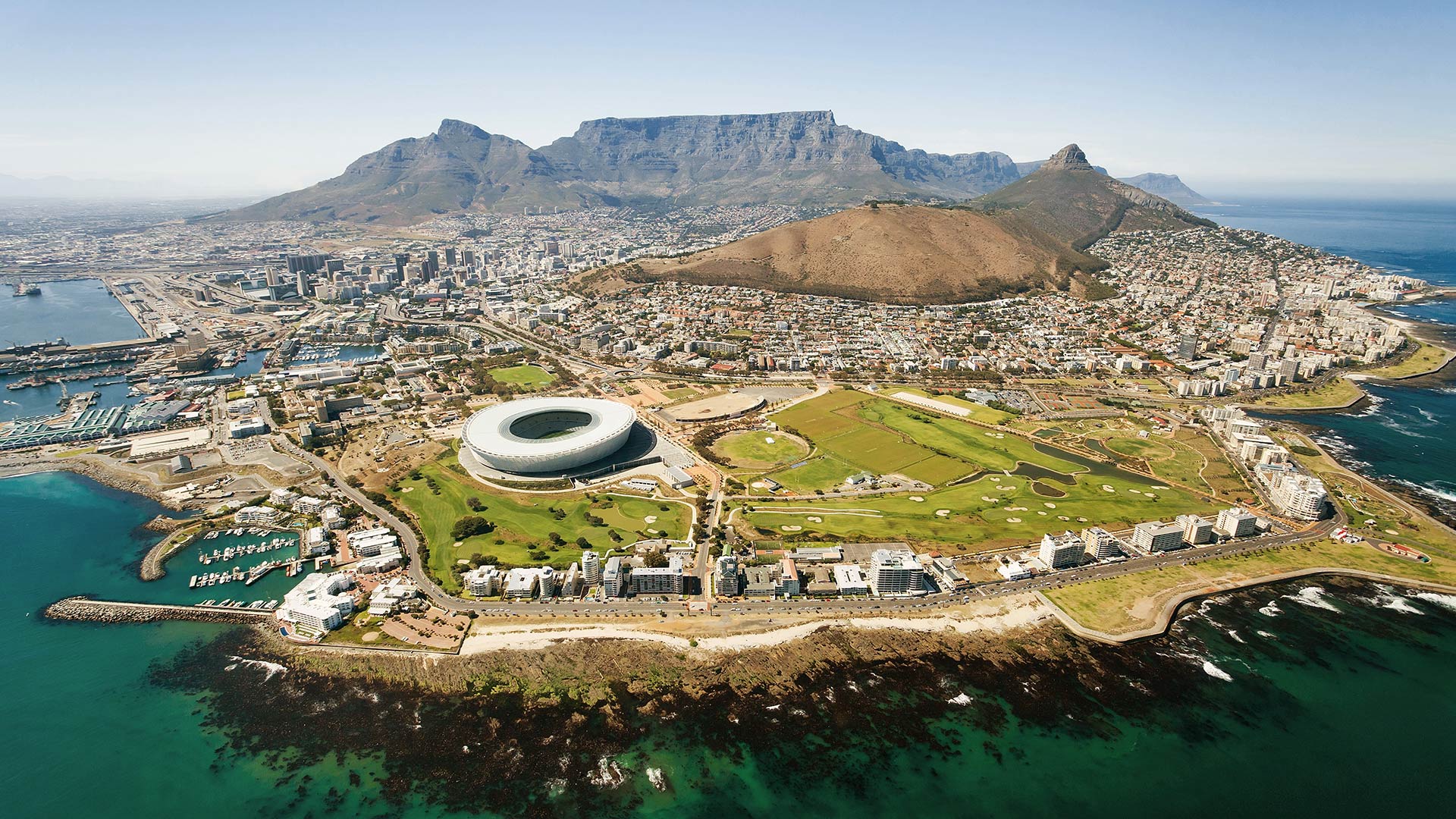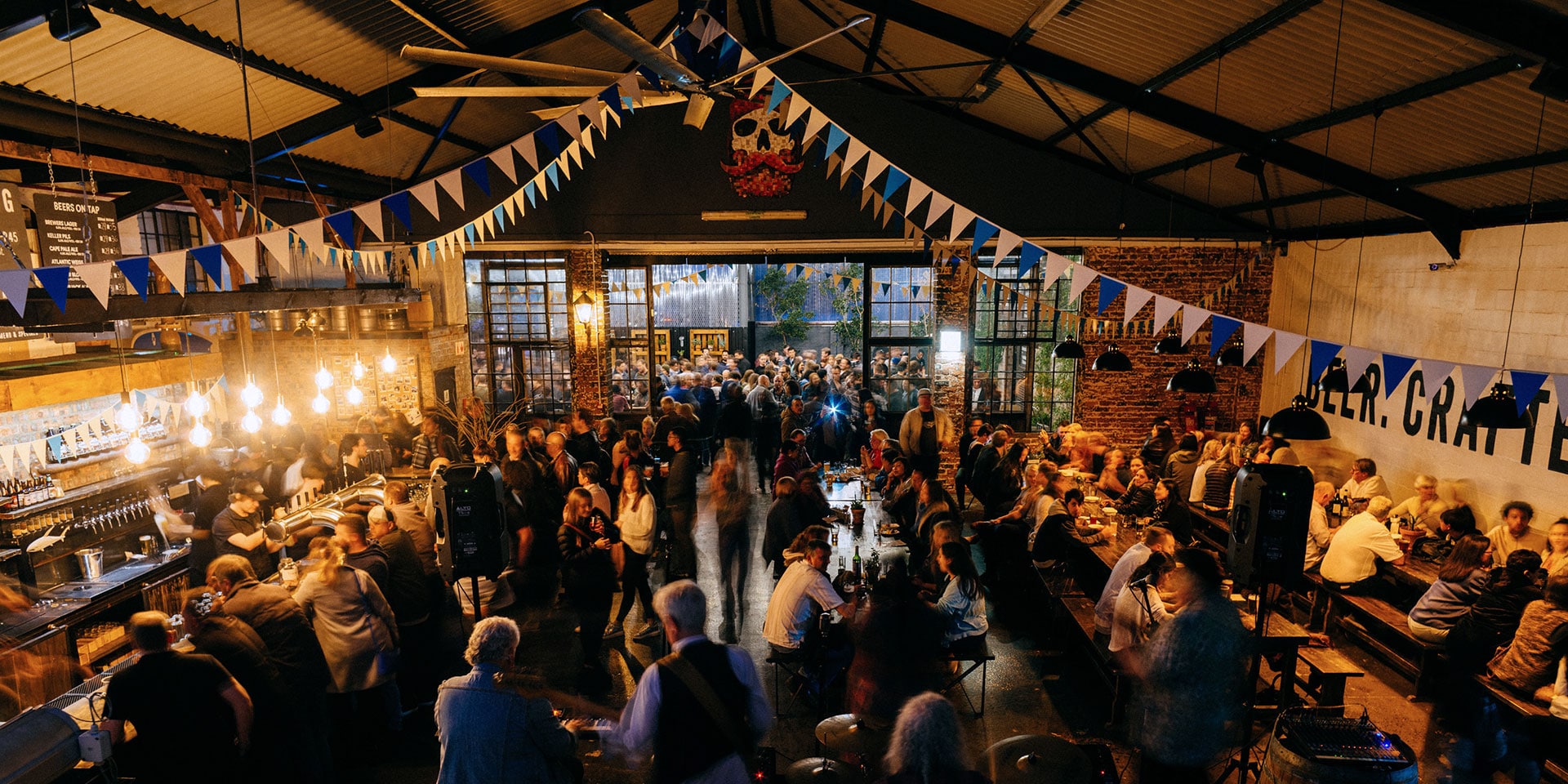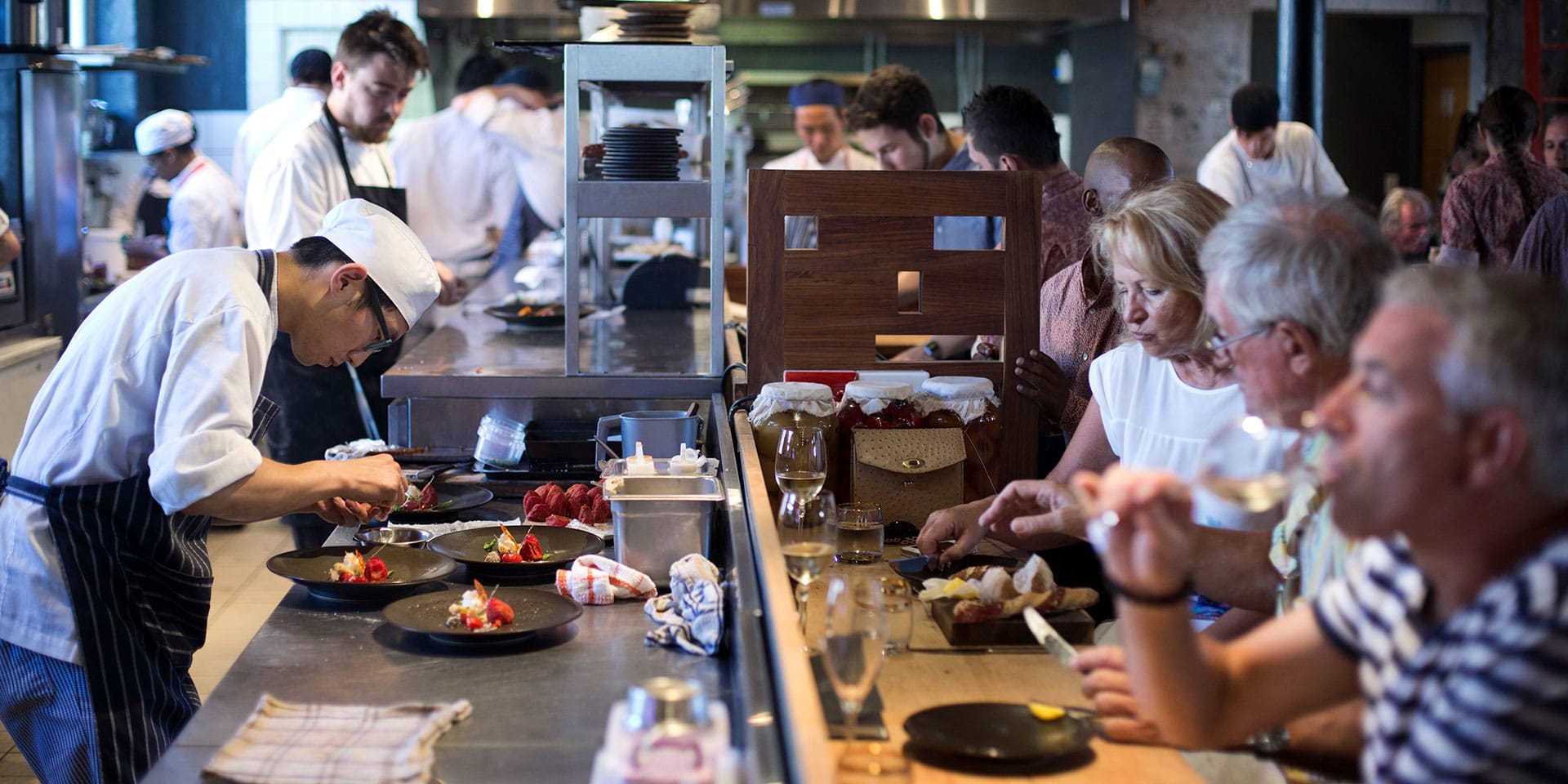
Test Kitchen’s farm-to-table ethos is decidedly eco-friendly. (Photo: Getty Images)
Cape TownCape Town on Your List? Here’s How to Visit the Eco-Friendly Way
By Sandra MacGregorWith its breathtaking landscape, incredible ocean vistas and abundant wildlife, Cape Town often finds itself at the top of travelers’ must-see lists.
Though the seaside city has recently been challenged with overcoming a severe drought, the region’s rapid response to the situation shows it is possible to build a sustainable, water-wise destination. In the last three years alone, the City of Cape Town has reduced its water usage by nearly 60 percent.
Conservation efforts have ranged from alternative water sources becoming available to a broader swing toward water-sensible lifestyles for locals and local businesses.
Despite its water concerns, Cape Town remains an extraordinary destination and is welcoming tourists as warmly as ever. In fact, for globetrotters serious about going green, a trip to the “Mother City” (as locals affectionately call it) provides the perfect opportunity to put your dedication to eco-friendly travel to the test.
To help you craft your ecotourism itinerary, we’ve highlighted some of the metropolis’s most sustainable hot spots.
EAT
The Test Kitchen
Arguably the most renowned restaurant in Cape Town, The Test Kitchen embraces a farm-to-table ethos and was crowned on of the best restaurants on the planet by the World’s 50 Best Restaurant Awards in 2016.
In response to the city’s water shortage, chef Luke Dale-Roberts temporarily transformed Test Kitchen into “Drought Kitchen” to showcase water-wise restaurant practices. Fine linen and china were replaced with disposable napkins and plates to reduce laundry and dish washing, and the menu was designed around meals that required minimal water usage.
Camphors at Vergelegen
Located on a historic winery in the Cape Town suburb of Somerset West, Camphors was the 2017 recipient of the Eat Out Woolworths Sustainability Award. The award recognizes restaurants that prioritize responsibly sourced local produce and humane farming practices, as well as fair labor conditions.
Executive Chef Michael Cooke’s seasonal menus give South African cuisine a modern twist, and many of the ingredients come directly from the estate’s gardens.
Tip: Before you dine, seek Cape Town restaurants that offer locally sourced food and are conscious of eco-friendly practices.
DRINK
Spier
Water isn’t Cape Town’s only precious liquid commodity; the winelands surrounding the city are an internationally acclaimed aqueous asset. Spier not only produces some of the country’s best wines, it’s also a leader in fair and sustainable business practices.
The winery has its own wastewater treatment plant and is recognized by the World Wildlife Fund as a Conservation Champion. It’s also fair-trade accredited and certified organic.
Backsberg
Less than an hour outside of Cape Town is Backsberg, South Africa’s first carbon-neutral winery — and one of only a handful of carbon-neutral vineyards in the world. Like Spier, it’s also endorsed as a Conservation Champion by the World Wildlife Fund.
Luckily, Backsberg spends as much time nurturing its wines as it does the environment; be sure to sample its earthy pinotage rose.
Tip: The World Wildlife Fund has an incredible app that lists the most sustainable wineries in the Cape Town/Western Cape region. The app’s listings also detail which wineries have eco bike and hiking trails.
SHOP
Neighbourgoods Market
Supporting local businesses is not only a wonderful way to uplift the regional economy, it’s also a superb chance to gain more insight into a destination. Self-described as an “essential showcase of Cape Town’s finest micro-merchants,” Neighbourgoods Market is an amazing assemblage of local foods, fashions and wine and beer merchants. Eating green has never been so delicious.
Artvark
If you’re looking for artwork or crafts made by locals, head to Artvark in the nearby coastal town of Kalk Bay. The shop has one of the best collections of ceramics, prints, sculpture and jewelry crafted by artisans from the Western Cape, as well as Southern Africa. It also hosts art exhibitions and musical performances.
Tip: The Fair Trade Tourism South Africa website provides an extensive list of cultural centers, attractions and nature reserves that promote responsible tourism.
STAY
The Westin Cape Town
Hotels typically use a lot of energy and water resources to keep their guests comfortable. To help ease water waste, many properties in Cape Town are embracing water-wise initiatives and sustainable solutions.
The Westin Cape Town has been actively implementing sustainable solutions to reduce water consumption and avoid wastage, while minimizing the impact on guests’ stays. One of the most innovative solutions is the installation of a desalination plant, which converts seawater into purified, drinkable water that is then used to supplement the property’s water supply.
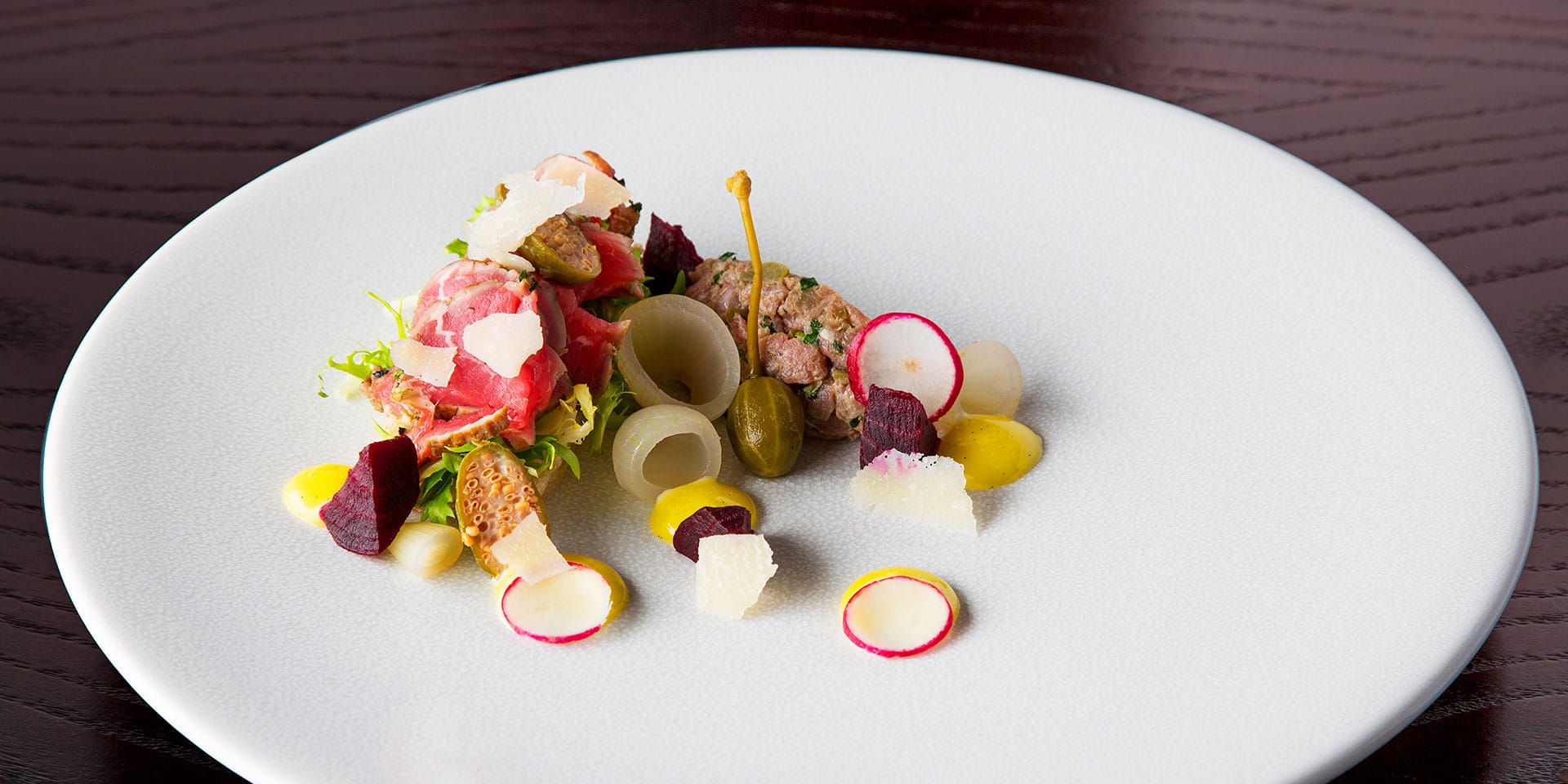
The hotel’s water-conservation efforts extend to its restaurants, as well. For example, the hotel’s SuperFoodsRx menu and drinks by The Juicery highlight nutrient-rich, energizing foods formulated to maximize well-being but minimize use in their preparation. Your little ones’ well-being is also considered in the property’s Eat Well Menu for kids.
Tip: If you want to go the extra mile to keep your water consumption in check, the city of Cape Town has developed a calculator that helps you track your water usage. The regional tourism office has set up a special website where you can track your water use and then offset it by donating to a local conservation project.





